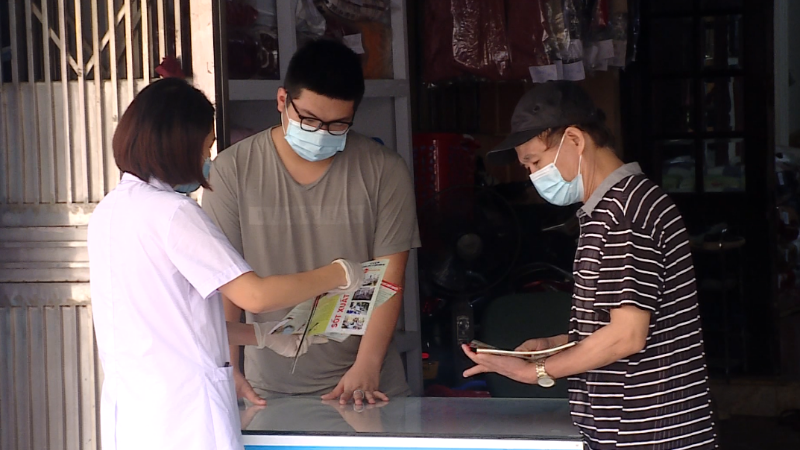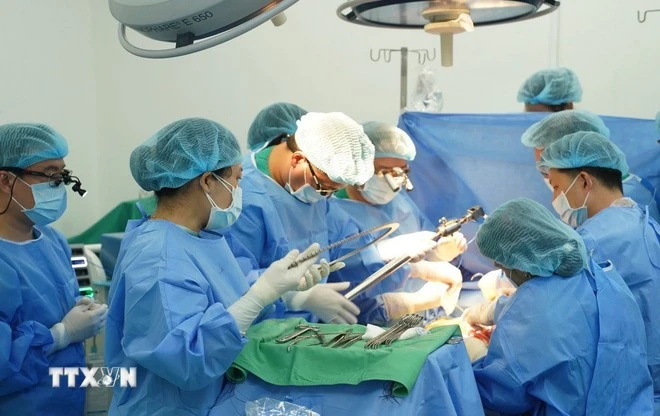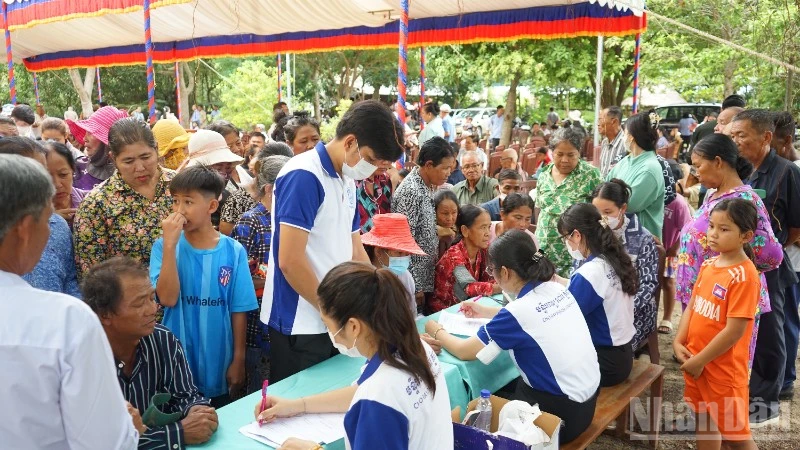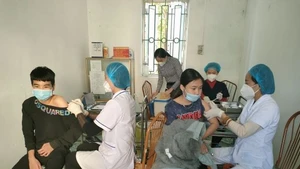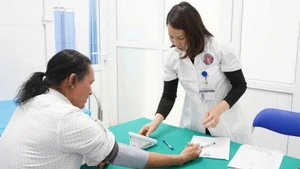According to the Ministry of Health, more than 65,000 cases of dengue fever and 11 deaths have been reported nationwide. Ho Chi Minh City alone accounts for over 26,000 cases, while southern provinces and cities make up more than 70% of the total. Some localities, including Ho Chi Minh City, Ha Noi, and Tay Ninh, have recorded several times more cases than in the corresponding period in 2024.
Remarkably, epidemiological surveillance shows that multiple strains of the dengue virus are circulating, including those linked to severe illness and complications.
Permanent Vice President of the Ho Chi Minh City Infectious Diseases Society, Dr Truong Huu Khanh, noted that dengue fever tends to break out in large cycles every three to five years. A widespread outbreak occurred in 2022, meaning this year could mark another resurgence.
Major hospitals with infectious disease departments, such as the National Hospital for Tropical Diseases, Bach Mai, Children’s Hospitals 1, 2, and others, are all reporting steadily rising numbers of dengue patients.
The Ministry of Health has recommended vaccination, warning that dengue fever is likely to continue spreading and becoming more complex in the coming period. Poor sanitation, stagnant waste, humid weather, and waterlogging, particularly in flood-hit areas, create favourable conditions for disease vectors to thrive. Health agencies are working with local authorities to launch public information campaigns, carry out spraying operations, eliminate mosquito larvae, and prevent outbreaks.
Alongside dengue fever, hand, foot, and mouth disease, and influenza, are also on the rise. Since the beginning of the year, more than 35,000 cases have been reported, with Ha Noi, Ho Chi Minh City, and Khanh Hoa among the hardest-hit localities. The risk of transmission is expected to climb sharply as students return to school.
Deputy Director of the Centre for Tropical Diseases at the National Children’s Hospital, Dr Do Thien Hai, warned that although no large outbreaks have been recorded so far, hand, foot, and mouth disease is highly contagious and progresses quickly. If parents delay seeking treatment, complications can arise, making it harder for doctors to intervene effectively.
Deputy Director of Ho Chi Minh City Children’s Hospital, Dr Nguyen Minh Tien, added that many parents mistakenly believe that serious dengue or hand, foot, and mouth cases must present with skin rashes before hospitalisation is necessary. In reality, not all patients show rashes, and many are admitted only after complications have already developed.
Hand, foot, and mouth disease spreads mainly through respiratory droplets. Health experts advise patients to self-isolate, use personal items separately, and practise good hygiene to curb transmission.
Although no Chikungunya cases have been detected in Viet Nam since the beginning of 2025, the disease, also spread by mosquitoes like dengue, remains on the rise globally. Citizens are urged to take preventive measures.
Another infectious disease increasingly reported in localities is Streptococcus suis (pig-borne bacterial infection), linked to food safety concerns. Patients typically arrive in hospital with severe symptoms such as meningitis, hearing loss, coma, and high fever. In Hue, 33 cases have been reported, including one death.
Given this situation, local authorities must strengthen epidemiological monitoring and inspection of livestock slaughter facilities, imposing strict penalties for violations of quarantine and food safety regulations.
The health sector, in close coordination with local governments, continues to promote awareness campaigns, urging people to avoid eating raw or undercooked meat, and to refrain from slaughtering sick pigs. Particular vigilance is needed after storms, when the risk of infectious disease outbreaks is highest, and with close coordination between the health sector, local authorities, and the community, Viet Nam is determined to curb dengue and other infectious diseases, safeguarding the health of the people.
